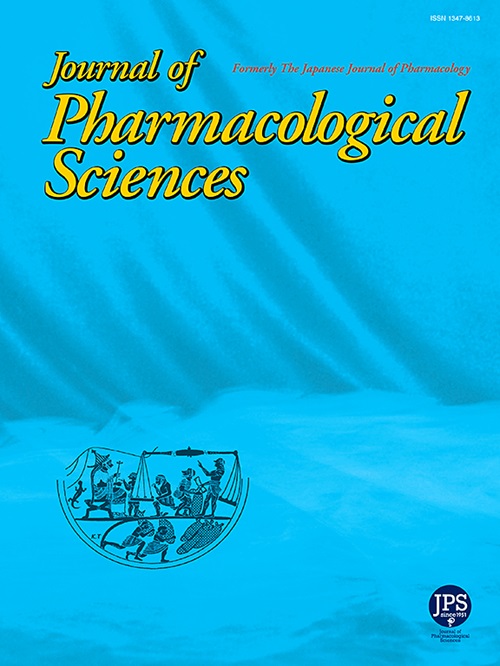Lutein reduces cisplatin-induced intestinal inflammation by inhibiting ROS-mediated MAPK/NF-κB pathways
IF 2.9
3区 医学
Q2 PHARMACOLOGY & PHARMACY
引用次数: 0
Abstract
Cisplatin is a commonly used chemotherapy drug that can effectively treat a variety of cancers, but it often causes severe side effects, including nephrotoxicity, ototoxicity, and gastrointestinal toxicity, which significantly affects patients' quality of life. Lutein is a natural carotenoid known for its potent antioxidant properties. Recent literature supports the beneficial effects of lutein supplements in conditions such as retinal degeneration, cardiovascular disease, and liver damage, emphasizing its broad anti-inflammatory capabilities. However, the mechanism by which cisplatin causes intestinal inflammation and the protective effect of lutein against this remain unknown. Here, we investigated the potential protective effect of lutein against cisplatin-induced intestinal epithelial injury. Our results proved that cisplatin significantly decreased cell viability, enhanced ROS generation, and activated inflammatory signaling pathways involving p38, ERK, and NF-κB in IEC-6 cells. Pretreatment with lutein markedly suppressed ROS production, reduced p38 and ERK phosphorylation, prevented NF-κB activation, and consequently attenuated inflammatory cytokine expression. These findings establish lutein as a promising dietary strategy to reduce cisplatin-induced intestinal inflammation, supporting its therapeutic potential for improving chemotherapy tolerance.
叶黄素通过抑制ros介导的MAPK/NF-κB通路减少顺铂诱导的肠道炎症
顺铂是常用的化疗药物,可有效治疗多种癌症,但常产生严重的副作用,包括肾毒性、耳毒性、胃肠道毒性等,严重影响患者的生活质量。叶黄素是一种天然的类胡萝卜素,以其强大的抗氧化特性而闻名。最近的文献支持叶黄素补充剂对视网膜变性、心血管疾病和肝损伤等疾病的有益作用,强调其广泛的抗炎能力。然而,顺铂引起肠道炎症的机制以及叶黄素对肠道炎症的保护作用尚不清楚。在这里,我们研究了叶黄素对顺铂诱导的肠上皮损伤的潜在保护作用。我们的研究结果证明,顺铂显著降低了IEC-6细胞的细胞活力,增强了ROS的产生,激活了包括p38、ERK和NF-κB在内的炎症信号通路。叶黄素预处理可显著抑制ROS生成,降低p38和ERK磷酸化,阻止NF-κB活化,从而减弱炎症细胞因子的表达。这些发现表明叶黄素是一种很有前景的饮食策略,可以减少顺铂诱导的肠道炎症,支持其改善化疗耐受性的治疗潜力。
本文章由计算机程序翻译,如有差异,请以英文原文为准。
求助全文
约1分钟内获得全文
求助全文
来源期刊
CiteScore
6.20
自引率
2.90%
发文量
104
审稿时长
31 days
期刊介绍:
Journal of Pharmacological Sciences (JPS) is an international open access journal intended for the advancement of pharmacological sciences in the world. The Journal welcomes submissions in all fields of experimental and clinical pharmacology, including neuroscience, and biochemical, cellular, and molecular pharmacology for publication as Reviews, Full Papers or Short Communications. Short Communications are short research article intended to provide novel and exciting pharmacological findings. Manuscripts concerning descriptive case reports, pharmacokinetic and pharmacodynamic studies without pharmacological mechanism and dose-response determinations are not acceptable and will be rejected without peer review. The ethnopharmacological studies are also out of the scope of this journal. Furthermore, JPS does not publish work on the actions of biological extracts unknown chemical composition.

 求助内容:
求助内容: 应助结果提醒方式:
应助结果提醒方式:


